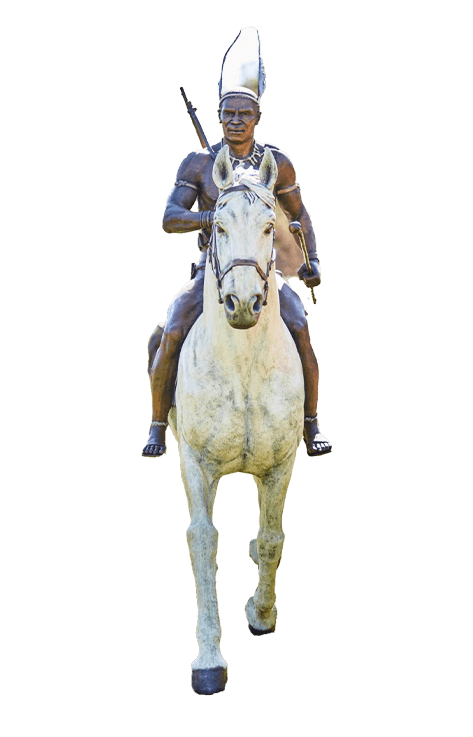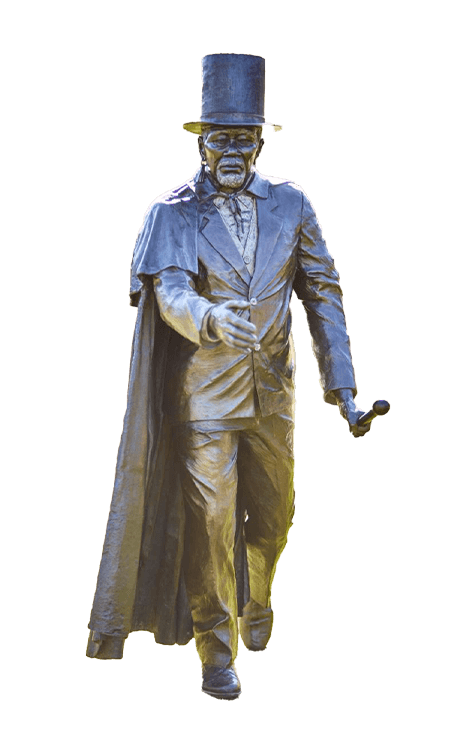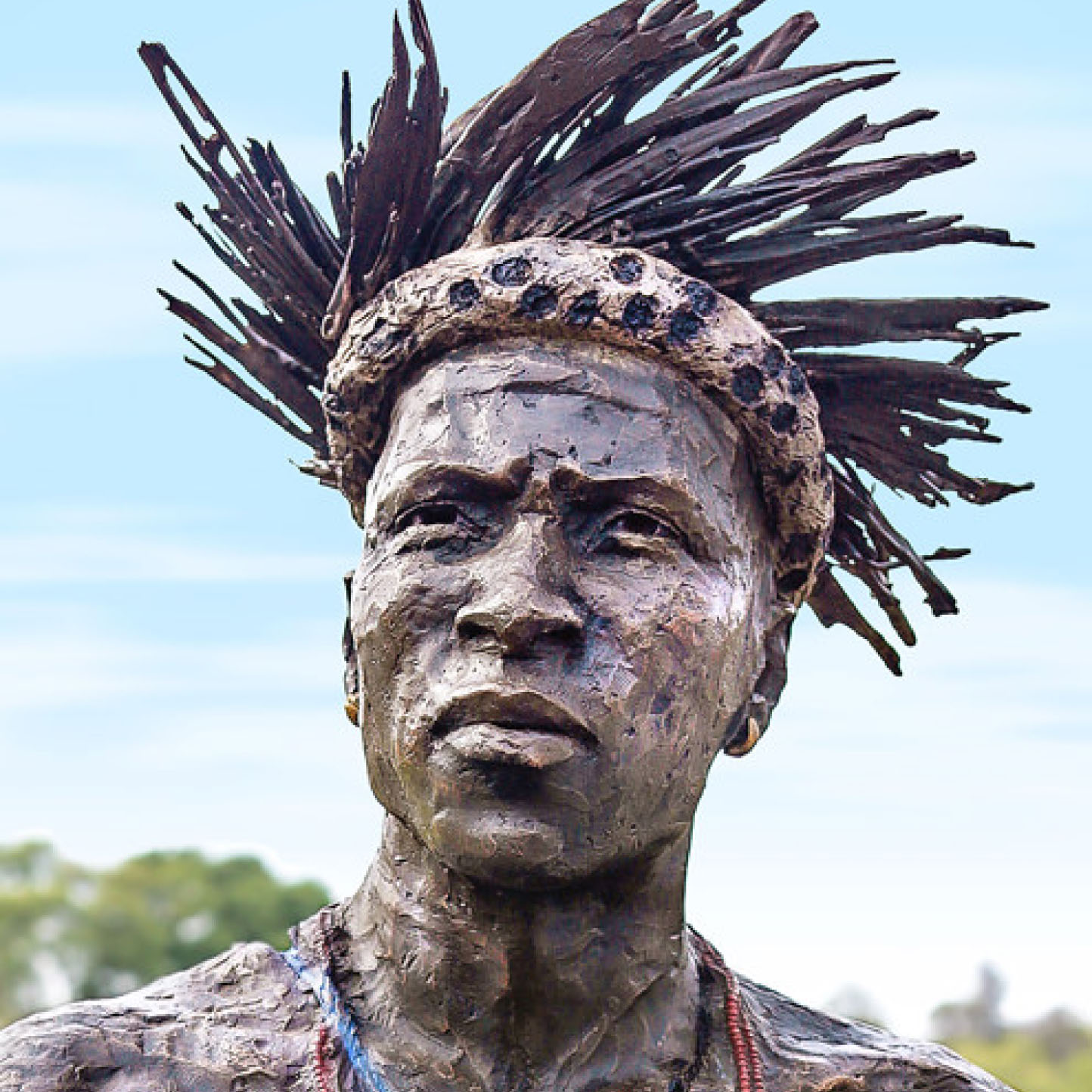
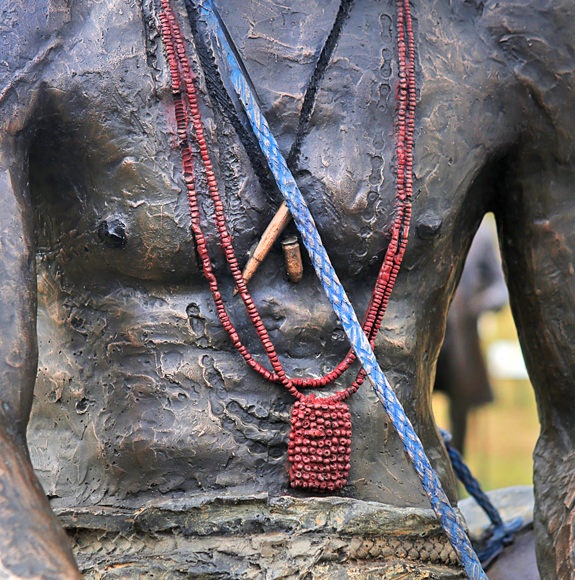
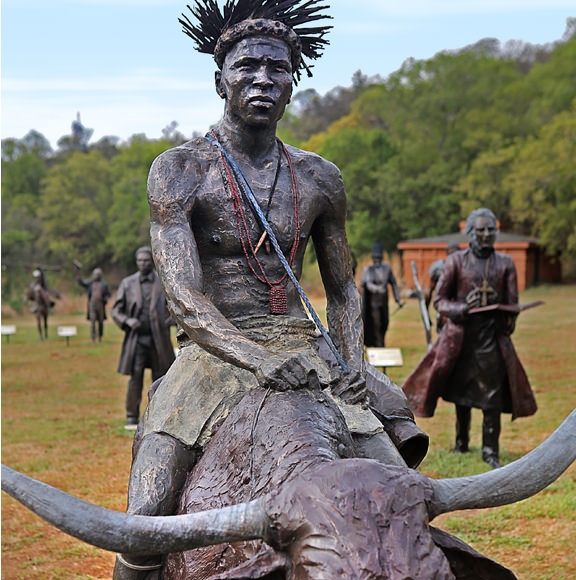
"The flogging of the chief Kgamanyane was more bitterly resented by the persecuted people than was any other of their various ills."
British journalist who travelled to Pilanesberg and Mochudi
Kgosi Kgamanyane Pilane
1820 - 1871
Chief of the Bakgatla-ba-Kgafela
Kgamanyane Pilane was born in the 1820s in Pilanesberg, near present-day Rustenburg among the Bakgatla-ba-Kgafela people of the North-West province in South Africa and neighbouring Botswana.
As the senior son, he succeeded his father Pilane Pheto in 1848 and ruled the Bakgatla-ba-Kgafela at a time when the Transvaal province was under the control of the Zuid-Afrikaansche Republiek (ZAR). As a result, the Boers dominated most of the land.
Chief Kgamanyane, however, was able to secure arable land for his people through 26 land deals by trading labour for land with the Boers in the 1850s and 1860s. His people were recruited as Boer servants in wars against several African tribes, but it was reported that he was secretly fighting the settlers.
During his reign the Bakgatla flourished in farming, trade and raiding as his tribe was one of the few allowed by the Boers to keep guns.
His quiet diplomacy, however, ended in 1868 when he openly defied Paul Kruger's request to supply labour for the building of a dam by harnessing men to carts filled with rocks. (Paul Kruger would become the ZARs third president 15 years later.) Kgamanyane was publicly flogged and humiliated in front of his people. This humiliation led him to relocate his people to Mochudi in present-day Botswana.
He died in 1871 and was succeeded by his son Lentswe. He was survived by at least 50 wives and numerous children.
